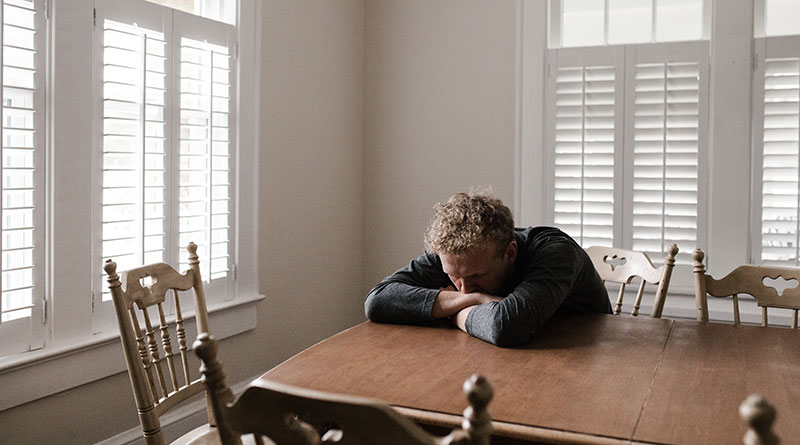Social anxiety, also known as social phobia, is a common mental health disorder that affects millions of people worldwide. It is characterized by intense fear and anxiety in social situations, which can lead to avoidance behaviors and significant impairment in daily life.
Roughly 15 million adults in the United States are estimated to be impacted by social anxiety disorder, as per the Anxiety and Depression Association of America (ADAA).
In this blog, we will discuss what social anxiety is, its symptoms, causes, and treatment options.
What is Social Anxiety?
Social anxiety is a type of anxiety disorder that involves excessive fear and self-consciousness in social situations. People with social anxiety may feel extremely anxious, embarrassed, or humiliated in social situations, which can make it difficult to participate in social activities, such as parties, meetings, or even simple conversations with others.
Symptoms of Social Anxiety
The symptoms of social anxiety can vary from person to person, but some common signs and symptoms include:
- Fear of being the center of attention or being watched by others
- Feeling anxious or self-conscious about everyday activities, such as eating or drinking in public
- Difficulty with public speaking or performing in front of others
- Overthinking and worrying about social interactions or events
- Physical symptoms, such as blushing, shaking, or trembling in social situations
- Avoiding social situations or events altogether to avoid anxiety
- Experiencing panic attacks or a sense of impending doom in social situations.
Causes of Social Anxiety
The causes of social anxiety are not entirely clear, but several factors may contribute to its development. These include:
- Genetics: There is some evidence that social anxiety may run in families, suggesting that genetic factors may play a role.
- Environmental factors: Traumatic or stressful experiences, such as bullying, social rejection, or abuse, may contribute to the development of social anxiety.
- Brain chemistry: Imbalances in certain brain chemicals, such as serotonin and dopamine, may contribute to social anxiety.
- Learned behaviors: Some people may develop social anxiety as a learned response to negative social experiences.
Treatment for Social Anxiety
Social anxiety can be treated with a combination of psychotherapy and medication. The most effective treatment approach will depend on the severity of the symptoms and individual needs.
- Cognitive-behavioral therapy (CBT): This type of therapy focuses on identifying and changing negative thought patterns and behaviors that contribute to social anxiety.
- Exposure therapy: This involves gradually exposing the person to feared social situations in a safe and controlled environment to help them overcome their fears.
- Medications: Antidepressants, such as selective serotonin reuptake inhibitors (SSRIs) and benzodiazepines, may be prescribed to help reduce symptoms of social anxiety.
- Lifestyle changes: Making lifestyle changes, such as getting regular exercise, reducing caffeine and alcohol consumption, and getting enough sleep, may also help reduce social anxiety symptoms.
Tips for Overcoming Social Anxiety
Social anxiety can be challenging to overcome, but with the right strategies and support, it is possible to manage and reduce symptoms.
Here are some tips for overcoming social anxiety:
Challenge Negative Thoughts
When identifying and challenging negative thoughts, it can be helpful to ask yourself if there is evidence to support the thought or if you’re jumping to conclusions. Try to reframe the negative thought into a more realistic and positive perspective. For instance, if you’re nervous about meeting new people, remind yourself that it’s normal to feel a bit anxious in new situations, but it doesn’t mean that the outcome will be negative.
Practice Relaxation Techniques
Try out various relaxation techniques and discover which ones suit you the most by experimenting with them. Some people may find that practicing mindfulness meditation for 10 minutes a day helps them manage their anxiety, while others may prefer taking a walk in nature or listening to calming music.
Face Your Fears
It can be helpful to break down the feared social situation into smaller, more manageable steps. For instance, if you’re afraid of public speaking, you could start by practicing your speech in front of a small group of trusted friends or family members. It’s important to acknowledge and appreciate every progress you make, no matter how small it may seem.
Build A Support System
Consider reaching out to friends and family members who can offer you support and encouragement. If you’re uncomfortable discussing your anxiety with loved ones, consider joining an online support group or seeking out a therapist who specializes in social anxiety.
Practice self-care
When practicing self-care, it’s important to remember that it’s not selfish or indulgent, but rather a necessary part of managing your anxiety. Take time to engage in activities that bring you joy and relaxation, such as reading a book or taking a warm bath.
Use positive self-talk
To make positive self-talk more effective, try to use specific language and focus on your accomplishments and strengths. For example, instead of telling yourself, “I’m not good at public speaking,” try saying, “I may feel nervous about public speaking, but I’ve successfully delivered presentations in the past.”
Seek Professional Help
When seeking professional help, it’s important to find a therapist who specializes in treating social anxiety. A mental health professional can provide you with evidence-based treatments such as cognitive-behavioral therapy (CBT) or exposure therapy, which can help you manage your anxiety and improve your quality of life.
Conclusion
Social anxiety is a serious condition that can have a profound negative impact on an individual’s wellbeing and daily functioning. However, with proper treatment and support, it is possible to overcome social anxiety and lead a fulfilling life.
Remember that seeking help is a sign of strength, and you do not have to suffer alone. If you think you may have social anxiety, speak to your doctor or a mental health professional.
With the right treatment and support, you can learn to manage your anxiety and live the life you want.
Sahil Sachdeva is the Founder of curemedoc.com and a Digital Marketing professional with years of experience. If you need help in Content writing and want to increase your website ranking, connect with him, as he has some premium websites where you can share blogs with DoFollow links and increase your website’s ranking on Google.





